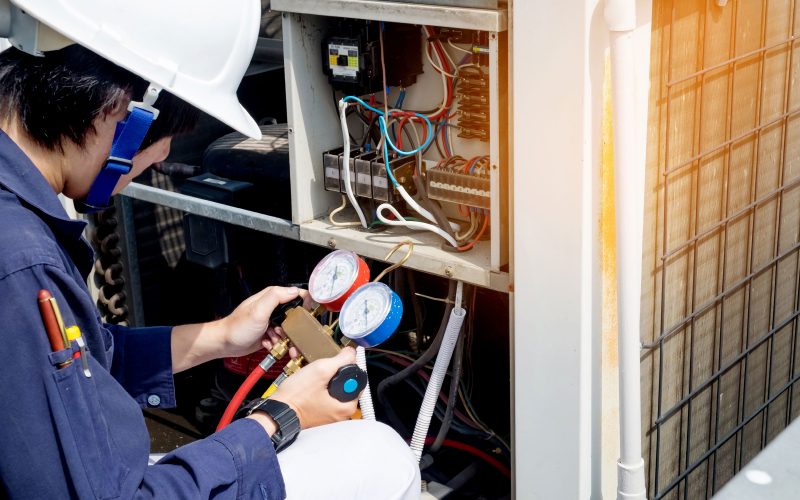Pathway to Net-Zero
Pathway to net-zero cooling products are energy efficient and use ultra-low Global Warming Potential (GWP) (<5) natural refrigerants making them an ideal choice for consumers looking to cut their climate footprint.
Cool Technologies is a searchable database of sustainable cooling from around the globe
The Cool Technologies database is full of information on manufacturers and users of hydrofluorocarbon-free cooling equipment that rely on natural refrigerants and other sustainable cooling technologies.
The global cooling sector is changing. Developing countries are today in the process of phasing out ozone depleting hydrochlorofluorocarbons (HCFCs). They are therefore making decisions about whether to replace HCFCs with hydrofluorocarbons (HFCs) or leapfrog to climate-friendly technologies, such as natural refrigerants .
Developed countries, which already rely primarily on HFCs in their refrigeration and air-conditioning sectors, are reducing HFC production and consumption through national, regional and global legislation.
The move away from HFCs is already well underway. By understanding what is available and working well for others you can make the best choice for the future.
7.8
%
of the world’s total greenhouse gas emissions came from the cooling sector in 2014
0.4
°C
of warming can be avoided by implementing the Kigali Amendment to phase down HFCs
70
billion
tonnes of CO2 equivalent emissions can be avoided by implementing the Kigali Amendment to
phase down HFCs
phase down HFCs
Air Conditioning
Economic growth in developing countries and increased temperatures brought about by climate change is increasing the demand for air-conditioning worldwide. There is a huge growth potential for HFC-free cooling.
Heat Pumps
Heat pumps provide an energy efficient way of converting heat from a low temperature to a higher one, or vice versa. They can be used to power radiators and heat the water in a boiler or as an air-conditioner to cool a space.
Refrigeration
Refrigeration is essential to human life, however the climate impact of the refrigerants and energy used is huge. Moving the refrigeration sector swiftly towards climate-friendly alternatives with high efficiency, is therefore essential.

Sustainable Cooling
The cooling sector is an important driver of climate breakdown-the greatest threat the planet faces today. The good news is thatclean cooling can offer hope in the battle against climate change as alternative sustainable technologies exist and are increasingly being deployed.
Reducing Energy Consumption
Saving energy not only reduces the climate impact of equipment but saves money too. Regular maintenance and leakage checks are key to keeping your equipment running efficiently, however there are several other ways to reduce your energy bills.



